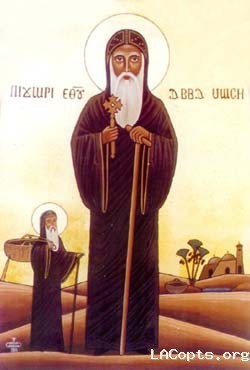Nathan at Fighting the Little Fights struggles with the use of allegory in interpreting scripture:
I encountered a rather frustrating use of allegory in reading “Mary: The Untrodden Portal“. Frustrating because I could easily understand the argument the author was making from the text but really coudn’t see how anyone would come up with that novel interpretation without first importing the idea. The author, quoting a saint whose name escapes me, argues that the East gate in Ezekiel 44 allegorically represents Mary (or her womb) and since it was shut after God went through it, similarly Mary was shut after God went through her in the Incarnation, thus “proving” the ever-virginity of the Theotokos. But the text itself could never be made to say any such thing if the doctrine had not already been firmly established in the mind of the interpreter – so what is authoritative about that kind of interpretation? Clearly it is not the text. Wright argues that at least some of the uses of allegory “constitute a step away from the Jewish world of the first century within which Jesus and his first followers were at home.” He does concede that allegory, given the nature of the debates surrounding difficult passages in the OT which might have lead to them being tossed altogether, did serve as a way of saving the Bible for the church. But where allegory fails is that it does not appeal to the Bible itself, even though it operates with a Christian framework and uses biblical language, but rather to previously established doctrines and traditions within the church. (Read the whole article: Fighting the Little Fights: Allegory as love affair?)
Well, let me first say that I have not read this book, but the excerpts and reports I have seen lead me to believe that this will be the least difficult bit of the book. At least, maybe it will be after we put it into perspective.
The prophecy of Ezekiel is apocalyptic literature — like the prophecy of Daniel or the Apocalypse of Saint John (Revelation). To put it crassly: It’s weird. It is impossible to understand the imagery employed without resorting to allegory. (Think, for example, of the valley of dry bones passage.) The interpretation of the East Gate as prophesying about the Theotokos is the most common Orthodox Catholic interpretation; in fact, I know of no other interpretation, in East or West.
But the underlying question is: What are the floodbanks surrounding the allegorical interpretation of scripture? What keeps allegory from overflowing its banks and becoming a devastating flood of rank heresy only pretending to have any root in scripture?
Let’s streamline the question a little and see if it offers some insight: What are the floodbanks surrounding the interpretation of scripture? Answer: The living Tradition of the Church, which is nothing less than the Holy Spirit moving within the Bark of the Church and steering her true. Does this sound circular? It is; the circularity of the argument is unavoidable.
The authority of any interpretation is based on the authority of the Tradition, the authority of the Church, which is ultimately based on the authority of God’s self-revelation in Jesus Christ and the scriptures which testify of him, both old and new testaments. Before you can determine what you should believe about any interpretation of scripture, you must first establish whether you believe that the Holy Spirit has continuously led the Church into all truth from the time of the Apostles.
Once you accept this primary dogma of the Church — this foundational point of ecclesiology — then the determination of what counts as an authentic interpretation is a far easier question.
Whether Anglican Bishop Wright’s position on allegory vis a vis the early Church holds up under scrutiny I will leave to more capable minds than my own. But, here’s a clue: “He argues that the current understanding of Jesus must be connected with what is known to be true about him from the historical perspective of first-century Judaism and Christianity.”


